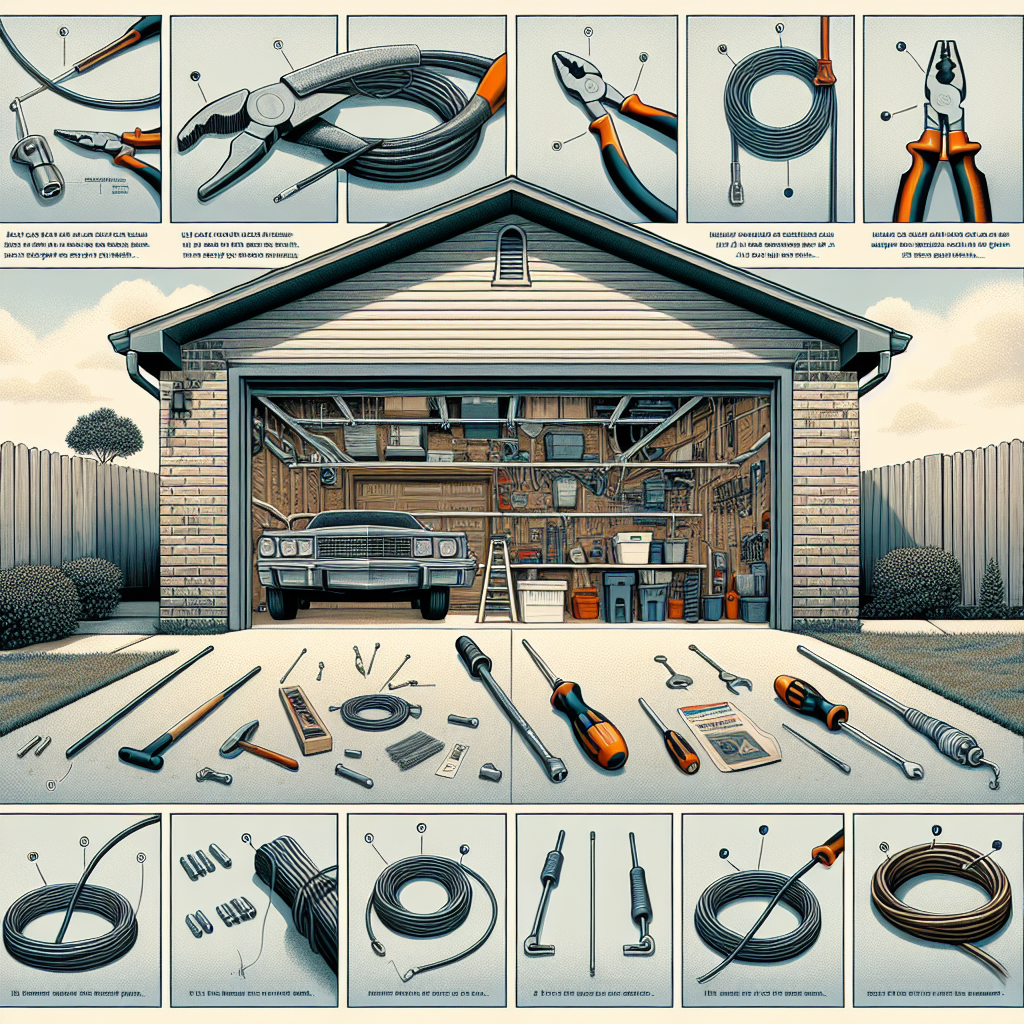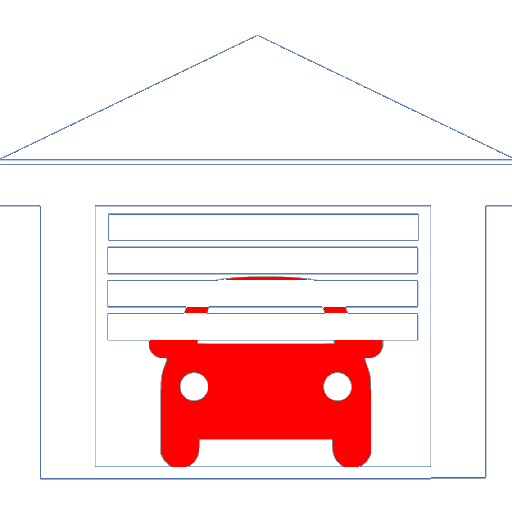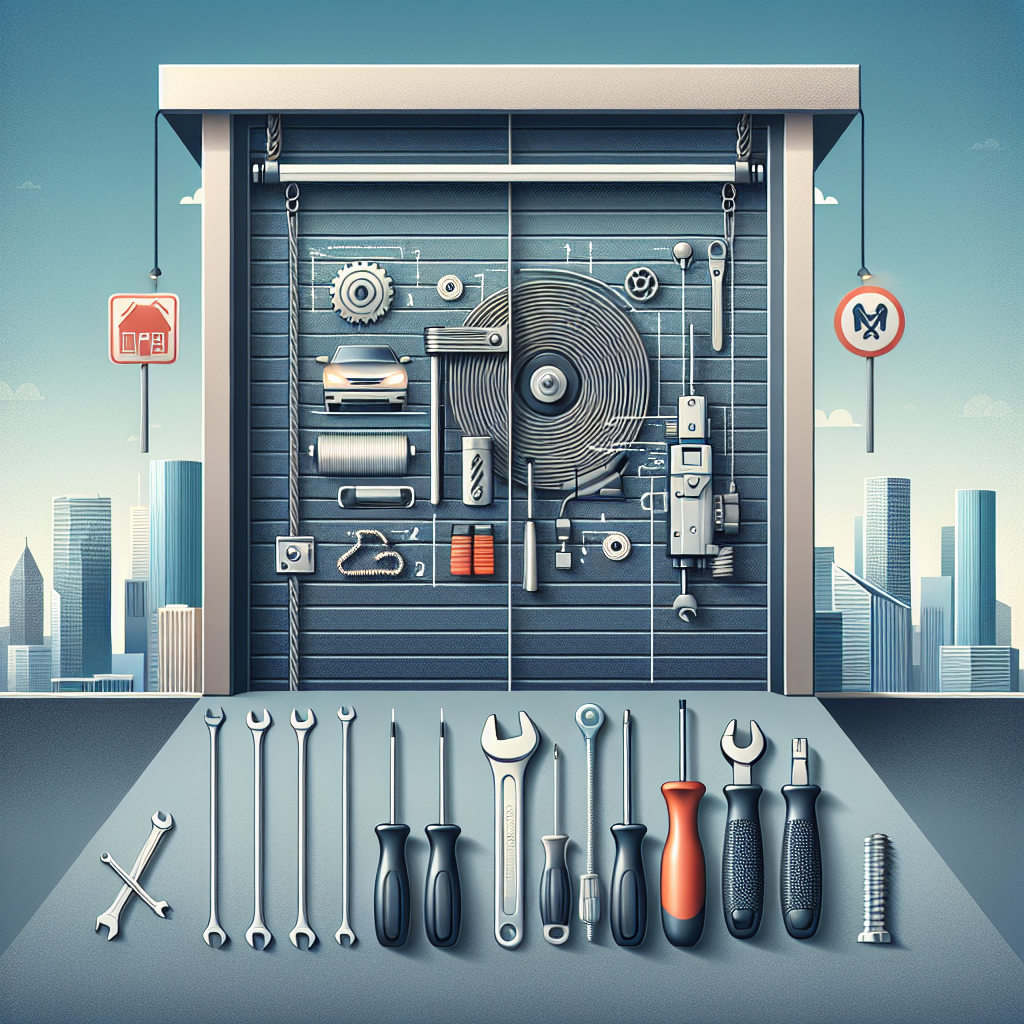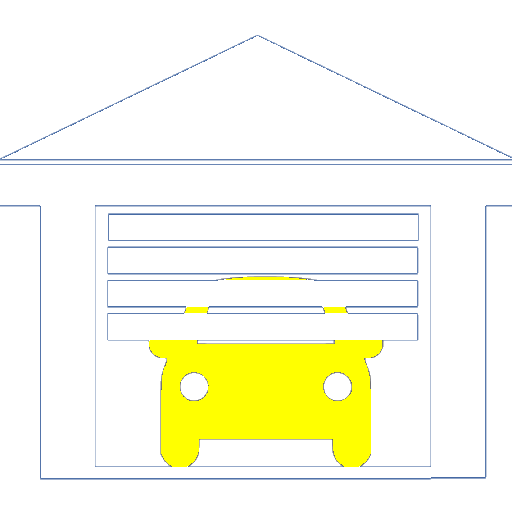Signs of Garage Door Cable Damage in Houston
Garage doors are an essential part of any home in Houston. They provide security, convenience, and protection for your vehicles and belongings. However, like any mechanical system, garage doors can experience wear and tear over time. One common issue that homeowners may encounter is garage door cable damage. In this article, we will explore the signs of garage door cable damage in Houston and why it is important to address this issue promptly.
Garage door cables play a crucial role in the operation of your garage door. They are responsible for lifting and lowering the door smoothly and evenly. Over time, these cables can become worn or damaged due to constant use, exposure to the elements, or improper maintenance. It is important to be aware of the signs of cable damage to ensure the safety and functionality of your garage door.
One of the most obvious signs of cable damage is fraying or unraveling. If you notice that the cables have become frayed or are starting to unravel, it is a clear indication that they need to be replaced. Frayed cables are not only a safety hazard but can also cause the door to become unbalanced, leading to further damage to the door and its components.
Another sign of cable damage is a door that is uneven or crooked when opening or closing. If you notice that one side of the door is higher or lower than the other, it could be a result of a damaged cable. Damaged cables can cause the door to become misaligned, making it difficult to open or close properly. This can put unnecessary strain on the door opener and other components, potentially leading to more extensive repairs down the line.
A garage door that is making unusual noises during operation can also be a sign of cable damage. If you hear grinding, scraping, or popping sounds when opening or closing the door, it could indicate that the cables are not functioning properly. These noises can be caused by the cables rubbing against other parts of the door or becoming tangled. Ignoring these sounds can lead to further damage and potentially costly repairs.
In addition to these visible signs, it is important to pay attention to the overall performance of your garage door. If you notice that the door is moving slower than usual, jerking, or stopping midway, it could be a result of cable damage. Damaged cables can cause the door to become stuck or struggle to move smoothly along the tracks. This can not only be frustrating but can also compromise the security and safety of your home.
In conclusion, garage door cable damage is a common issue that homeowners in Houston may encounter. It is important to be aware of the signs of cable damage to ensure the safety and functionality of your garage door. Signs such as fraying or unraveling cables, uneven or crooked door movement, unusual noises, and poor overall performance are all indications that your cables may need to be replaced. Promptly addressing cable damage can prevent further damage to your garage door and its components, saving you time, money, and potential safety hazards. If you suspect that your garage door cables are damaged, it is recommended to contact a professional garage door repair service in Houston to assess the situation and provide the necessary repairs or replacements.
Importance of Timely Garage Door Cable Repair in Houston

Garage doors are an essential part of any home in Houston. They not only provide security but also enhance the overall aesthetic appeal of the property. However, like any other mechanical system, garage doors are prone to wear and tear over time. One of the most critical components of a garage door is the cable. The cable is responsible for lifting and lowering the door smoothly and safely. When the cable becomes damaged or worn out, it is crucial to address the issue promptly to avoid further complications.
Timely garage door cable repair is of utmost importance in Houston for several reasons. Firstly, a damaged cable can compromise the safety of your garage door. When the cable is frayed or broken, it can cause the door to become unbalanced, leading to potential accidents. An unbalanced door can suddenly slam shut or unexpectedly open, posing a significant risk to anyone in its vicinity. By promptly repairing the cable, you can ensure the safe operation of your garage door and prevent any potential injuries.
Secondly, a malfunctioning cable can cause significant damage to your garage door and its components. When the cable is not functioning correctly, it puts excessive strain on other parts of the door, such as the springs and rollers. This additional stress can lead to premature wear and tear, resulting in costly repairs or even the need for a complete replacement of the door. By addressing cable issues in a timely manner, you can prevent further damage to your garage door and save yourself from unnecessary expenses.
Furthermore, a faulty cable can disrupt the convenience and functionality of your garage door. When the cable is damaged, it can cause the door to become stuck or operate unevenly. This can be incredibly frustrating, especially when you are in a hurry or need to access your garage quickly. By scheduling timely cable repairs, you can ensure that your garage door operates smoothly and efficiently, providing you with the convenience you expect.
In addition to safety, cost, and convenience, timely garage door cable repair also helps to prolong the lifespan of your garage door. Regular maintenance and prompt repairs can significantly extend the longevity of your door and its components. By addressing cable issues early on, you can prevent further damage and ensure that your garage door continues to function optimally for years to come.
When it comes to garage door cable repair in Houston, it is essential to rely on professional technicians. Attempting to repair the cable yourself can be dangerous and may lead to further damage or injury. Professional technicians have the necessary expertise, tools, and experience to diagnose and repair cable issues effectively. They can also provide valuable advice on maintenance and preventive measures to keep your garage door in top condition.
In conclusion, timely garage door cable repair is crucial for the safety, functionality, and longevity of your garage door in Houston. By promptly addressing cable issues, you can prevent accidents, avoid costly repairs, maintain convenience, and prolong the lifespan of your garage door. Remember to seek the assistance of professional technicians for any cable repair needs to ensure a job well done.
DIY Tips for Garage Door Cable Repair in Houston
DIY Tips for Garage Door Cable Repair in Houston
Garage doors are an essential part of any home, providing security and convenience. However, like any mechanical system, they can experience issues over time. One common problem that homeowners in Houston may encounter is a broken or damaged garage door cable. When this happens, it is important to address the issue promptly to ensure the door functions properly and to prevent any potential accidents.
Before attempting any DIY repairs, it is crucial to understand the basics of garage door cable systems. Garage doors typically have two cables that run along the sides of the door and are attached to the bottom brackets. These cables work in conjunction with the springs to lift and lower the door smoothly. If one or both of the cables become frayed, worn, or broken, it can cause the door to become unbalanced or even completely inoperable.
If you notice any signs of a damaged cable, such as the door not opening or closing smoothly, sagging on one side, or a visible break in the cable, it is time to take action. The first step is to ensure the door is fully closed and disconnected from the power source. Safety should always be a top priority when working on garage doors, as they can be heavy and potentially dangerous.
To begin the repair process, you will need a few tools, including a pair of locking pliers, a wrench, and a replacement cable. It is important to purchase the correct cable for your specific garage door model to ensure a proper fit. Once you have gathered the necessary tools and materials, you can proceed with the repair.
Start by removing the bottom bracket from the door. This can usually be done by loosening the bolts with a wrench. Once the bracket is detached, you can carefully remove the old cable from the pulley system. Take note of how the cable is threaded through the pulleys, as this will be important when installing the new cable.
Next, attach the new cable to the bottom bracket and thread it through the pulleys, following the same path as the old cable. Use the locking pliers to secure the cable in place, ensuring it is taut but not overly tight. Once the cable is properly installed, reattach the bottom bracket to the door using the wrench.
After completing the cable replacement, it is important to test the door to ensure it is functioning correctly. Reconnect the power source and open and close the door a few times to check for any issues. If the door operates smoothly and without any problems, you can consider the repair a success.
While DIY garage door cable repair can be a cost-effective solution, it is important to recognize when a professional may be needed. If you are unsure about your ability to safely and effectively complete the repair, it is always best to consult a professional garage door technician. They have the knowledge and experience to handle more complex repairs and can ensure the job is done correctly.
In conclusion, a broken or damaged garage door cable can be a frustrating issue for homeowners in Houston. However, with the right tools and a basic understanding of the repair process, it is possible to tackle this problem on your own. By following these DIY tips, you can save time and money while restoring your garage door to its proper working condition. Remember to prioritize safety and consult a professional if needed, and soon enough, your garage door will be functioning smoothly once again.
Q&A
1. What is the capital of France?
Paris.
2. Who painted the Mona Lisa?
Leonardo da Vinci.
3. What is the largest ocean in the world?
Pacific Ocean.



